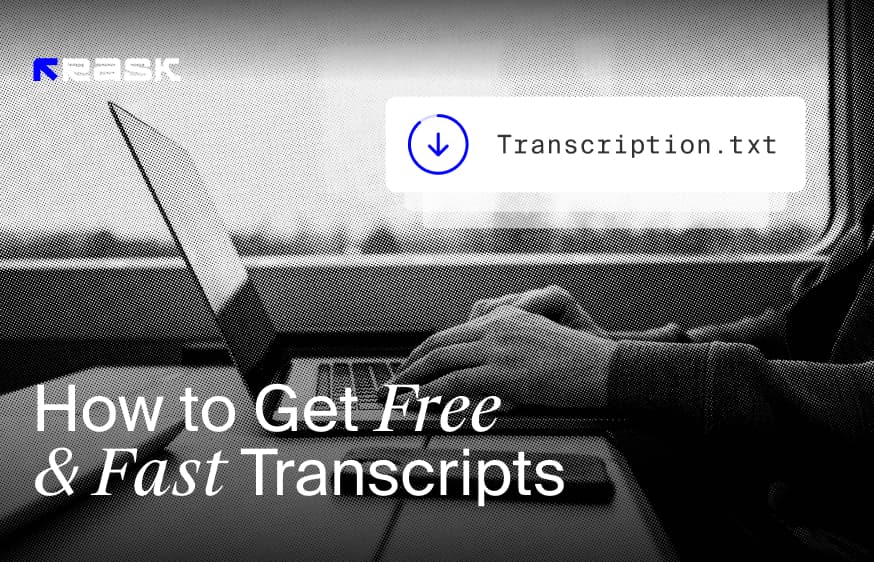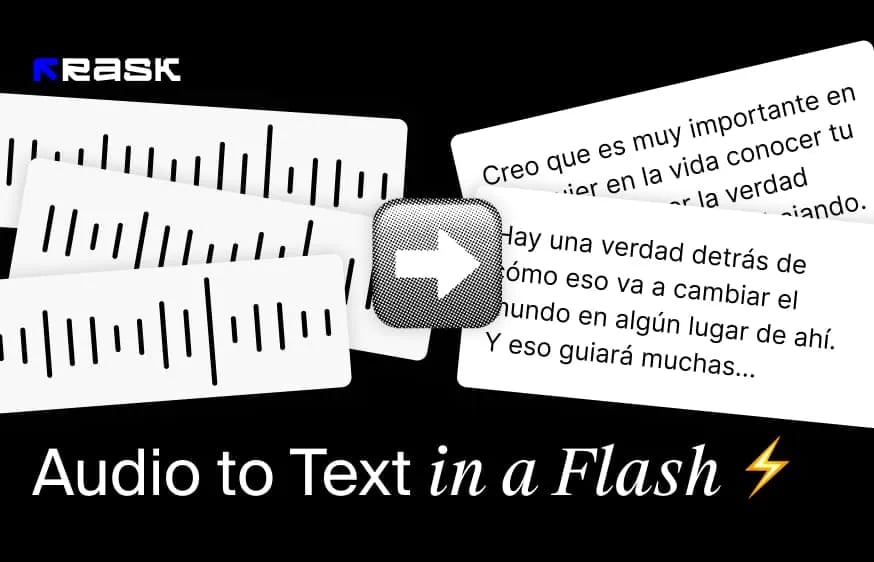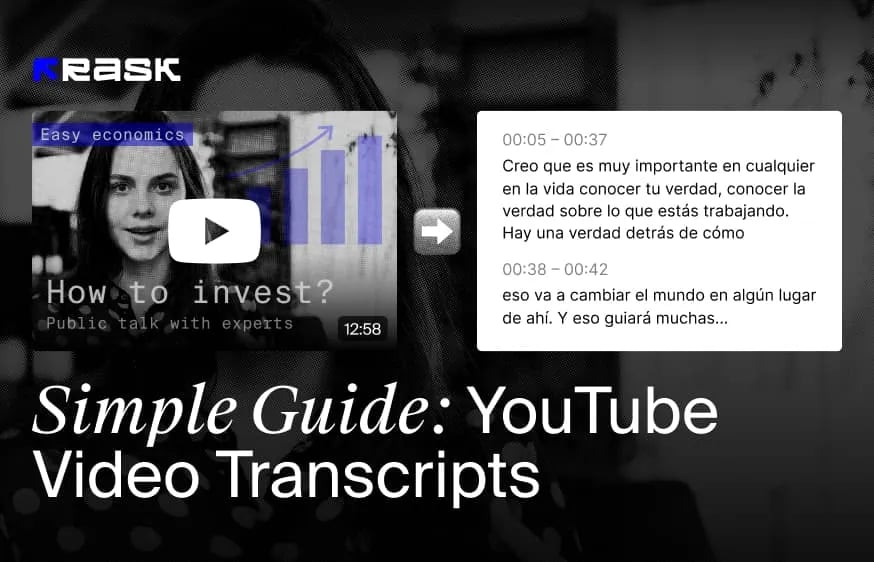In today's digitally connected world, speech-to-text APIs have become essential for enterprise businesses and developers. From hands-free control over a device to accessibility across an extensive portfolio of users with different abilities, these APIs can quickly and precisely turn spoken language into written text.
As demand for speech recognition grows, developers and project managers seek reliable and efficient speech-to-text APIs to add this capability to their products.
The idea behind this post is to help one find the best speech-to-text API, providing profound insights into the top solutions on the market.
We will point out Rask AI API as the best choice and explain what makes it perfect for projects requiring high performance and scalability.
What is Speech-to-Text API, and Why Does It Matter?
API Speech to Text recognizes speech in written form using Automatic Speech recognition technology. APIs are in use everywhere, starting with customer service, through media, healthcare, and education. In general, they enable companies to automate work, make products more available, or create new, innovative products to serve users' needs.
In the wake of a rise in voice-activated technology and improvements in artificial intelligence, speech-to-text APIs are now raising the bar for industries everywhere, increasing speed and intuitiveness in user-technology interactions. By adding a solid speech-to-text API, one is assured of bringing about seamless, user-friendly experiences down the line, driving more efficiency with reduced costs.
Critical Criteria for Choosing the Best Speech-to-Text API
The best speech-to-text API chosen would need to be guided by essential success factors that explain how well the system meets the requirements of a particular project. These are the primary criteria for consideration:
Accuracy and Reliability
Accuracy is a bedrock for any powerful speech-to-text API. The consequences of minor transcription errors can assume gigantic proportions for transcription services, real-time customer interactions, or even legal purposes. The most accurate APIs, rounding on Rask AI, have leveraged large deep learning models with massive datasets to improve precision. Further, they can recognize varied accents, dialects, and background noise, making them handy in several situations.
Speed and Latency
Speed will prevail depending on the application, such as live captioning or real-time customer support. Low-latency APIs process spoken words almost in real time and thus let applications take quick actions quickly and maintain seamless user interactions. APIs like Rask AI and Google Cloud Speech to Text provide speedy response times and are ideal for applications requiring quick processing.
Cost and Scalability
The prices of various speech-to-text APIs range from absolutely free to highly expensive, depending on the functionality and feature set available. The best solutions offering speech-to-text APIs have pricing models that scale well so businesses can start small and grow over time. Rask AI API provides competitive pricing, making this technology accessible to startups and large-scale enterprises.
Multi-Language Support
With a global market, multi-language support is a necessity. Multiple languages and regional accent APIs empower companies to take up a large chunk of the market, offering seamless experiences for non-English speakers. APIs with impressive libraries in various languages can help companies build more inclusive, accessible products, which would be the key to unlocking market reach.
Comparison of the Best Speech to Text APIs
Let us delve further into these top speech-to-text APIs and what separates them.
1. Rask AI API
Among the most recommended speech-to-text APIs, Rask AI outperforms the other options on all the selection criteria. The following reasons outline why Rask AI leads:
High Accuracy: API utilizes the latest ASR algorithms, which render high-class accuracy. It, therefore, becomes highly effective in industries that demand accuracy, such as health and law.
Capabilities: With its rapid processing, the Rask AI API is suitable for applications where interaction in real-time is vital.
Affordability: Rask AI's pricing is economical, with varied models to fit projects from small-scale startups to large organizations.
Full Language Support: Rask AI API supports multiple languages, which can be helpful for applications with a more global reach.
2. Google Cloud Speech-to-Text
Accuracy and the ability to support various languages make Google's API powerful. Extensive neural network capabilities combined with Google's large-scale infrastructure make it a good choice for projects with quality at the forefront of their priorities and ready to invest in a premium solution.
3. Deepgram
Deepgram is known for its flexibility and affordability, with custom models that can be fine-tuned to suit specific use cases, from transcribing medical terminology to legal terminology. Its accuracy, however, is lesser than that of leading competitors, and it will subsequently be less suited for an application when absolute precision is required.
4. AssemblyAI
AssemblyAI boasts ease of use and flexibility with high accuracy, which sets it apart from the competitors; it can be expensive and may be out of budget for smaller projects.
All of these speech-to-text APIs excel in different areas and for other uses.
For a detailed look at how any of these compare, please check out resources from Deepgram and Eden AI, who provided info on these APIs derived from data.
Industry Applications of Speech-to-Text APIs
Speech-to-text APIs equip various industries with innovative ways of running a business and contacting their clientele. Examples include:
1. Healthcare: Medical transcription accuracy is paramount in this industry. Speech to text API technology facilitates medical professionals' efficiency in documenting the details of patient interactions. It frees them from cumbersome administrative tasks, giving them more time for patient care. Furthermore, health service providers can use these APIs to enhance telemedicine by summarizing spoken consultations into accurate medical records.
2. Customer Service: Speech recognition is employed in contact centers to transcribe customer calls to analyze conversations based on sentiment and insight. The speech-to-text feature allows customer service departments to hear firsthand trends and pain points for customer satisfaction.
3. Media and Broadcasting: The speech-to-text API benefits journalists and broadcasters in changing speech from interviews, press conferences, and broadcasts into text. This saves them much time compared to manual transcription. Secondly, content creators appreciate the closed-captioning services for their videos, thus making them easily accessible to deaf viewers.
4. Education: Speech to text technology finds its place in education, supporting students with learning disabilities or with alternative formats in learning materials. By integrating ASR into online courses, educators can foster more inclusive learning environments for students everywhere.
5. Legal Services: Verbatim transcription is standard in the legal world, particularly in deposition settings and courtroom proceedings. In this respect, speech-to-text APIs can be helpful to an attorney in getting large chunks of information transcribed and organized quickly to prepare a case and for more detailed document accuracy.
Take Action Today
The best speech-to-text API depends on factors that are not limited to accuracy, speed, cost, and language support. This sets the Rask AI API as one of the best options since it excels in all those aspects, making it highly suitable for developers and project managers seeking a reliable but affordable solution. Ready to integrate the best speech-to-text API into your project? Give the Rask AI API a try today and experience the power of high-quality speech-to-text conversion.
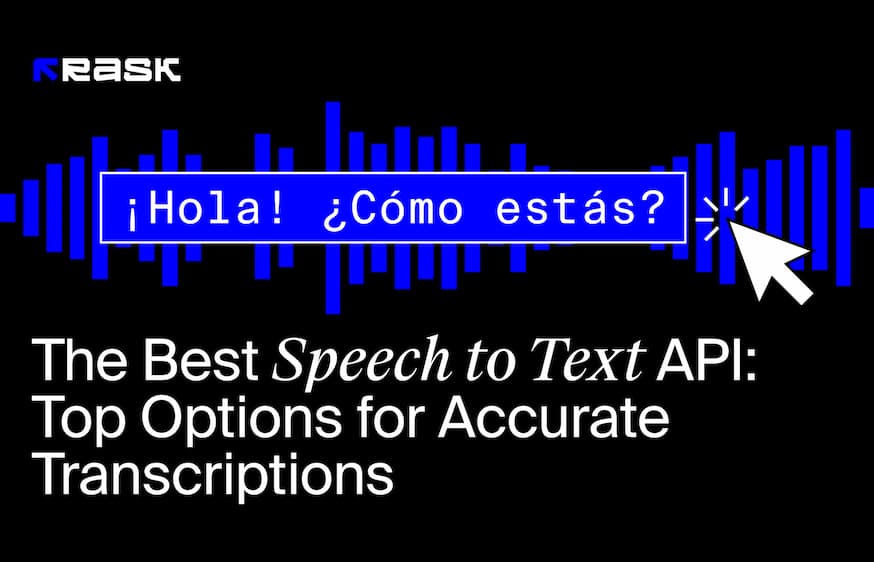
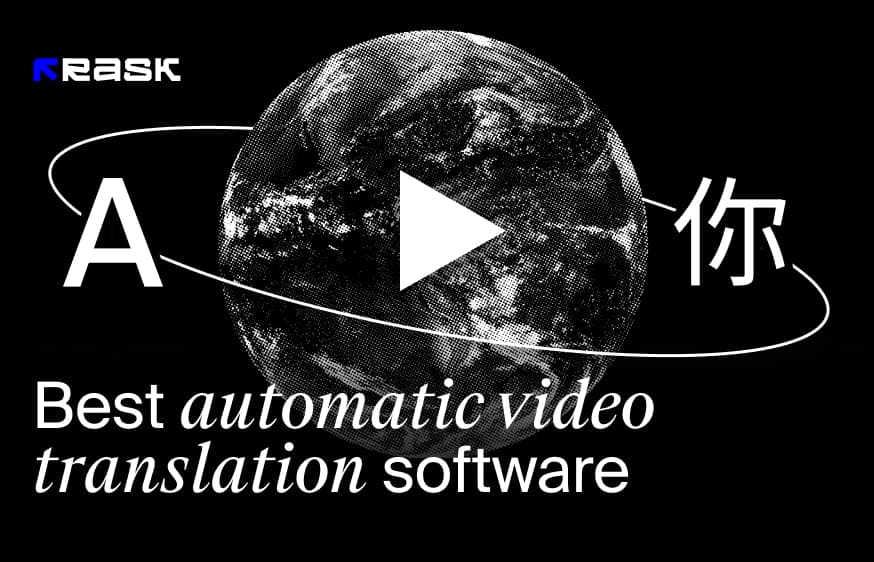
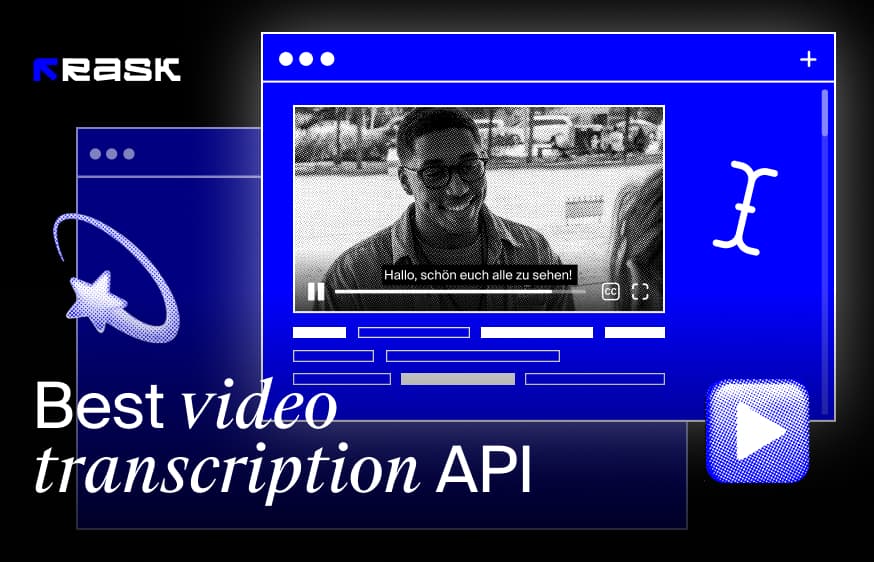
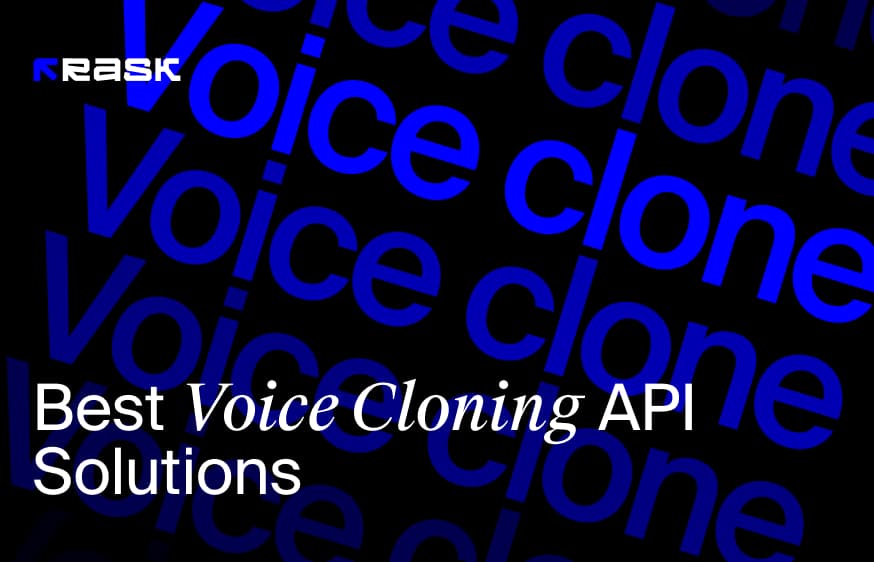
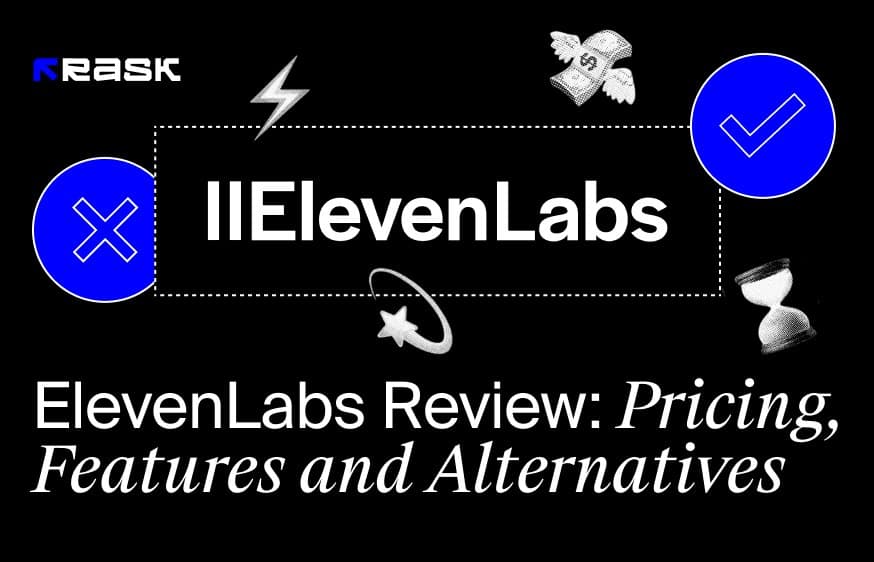
.jpg)
.webp)
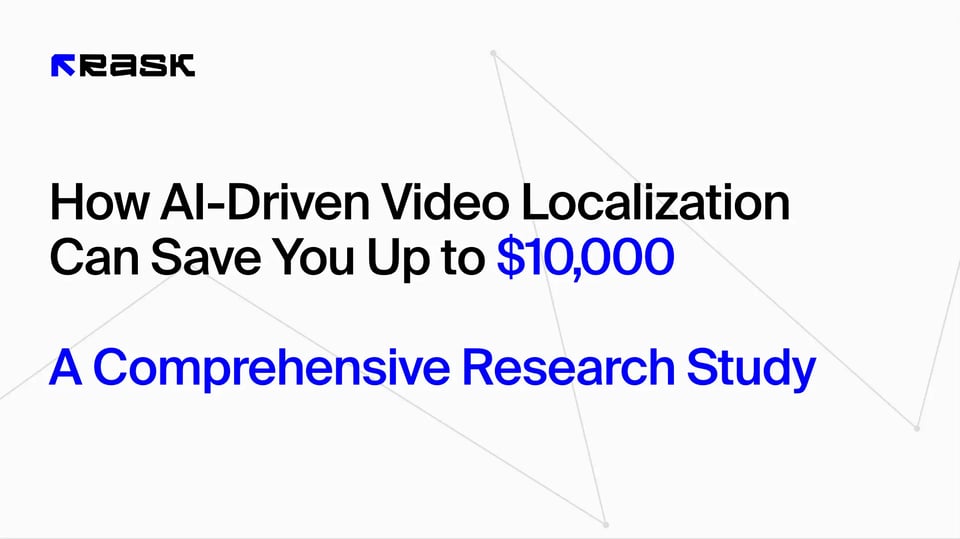
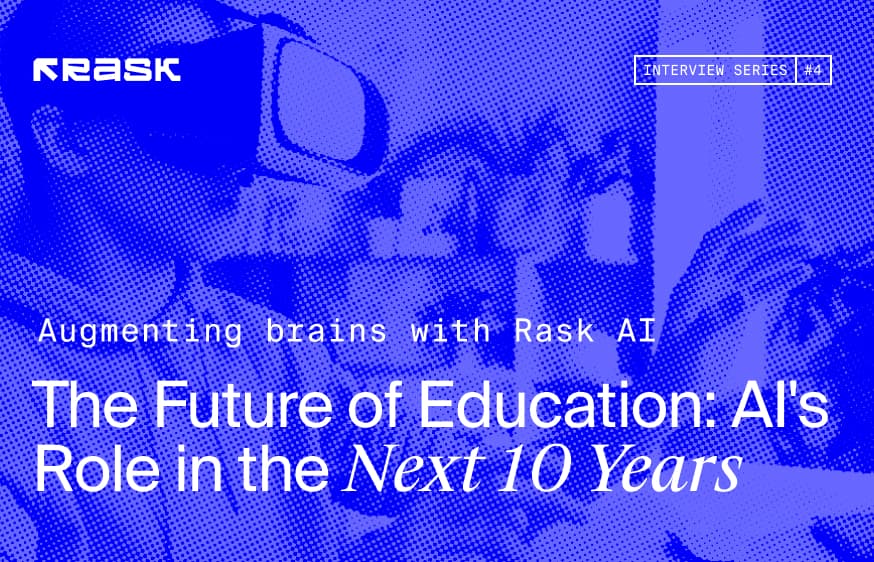
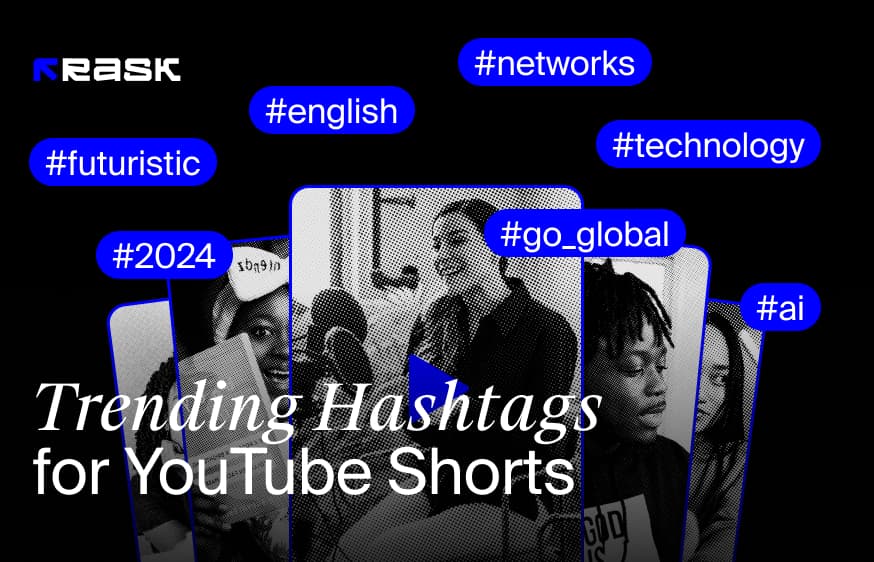
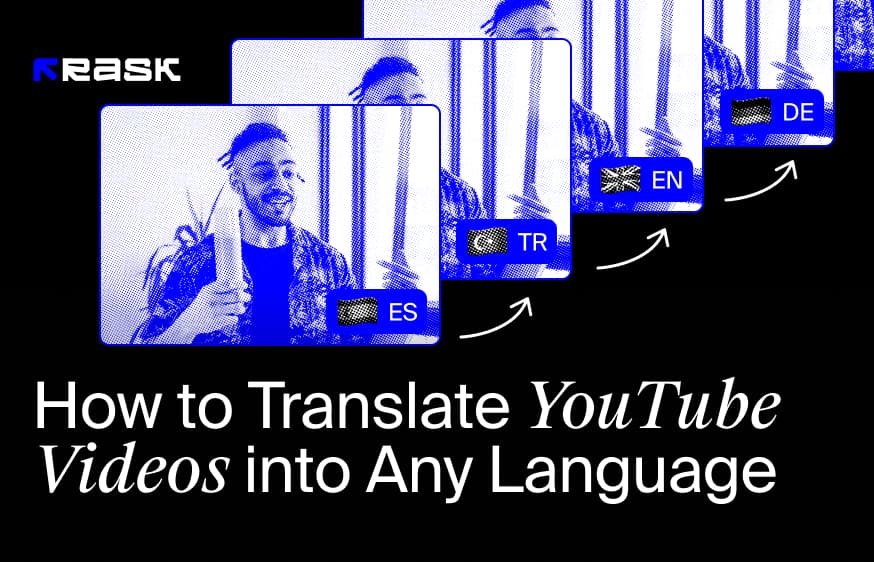
![8 Best Video Translator App for Content Creators [of 2024]](https://rask.ai/cdn-cgi/image/width=960,format=auto,fit=scale-down/https://cdn.prod.website-files.com/63d41bc99674c403e4a7cef7/6668a3dcd3175bd1d1c73c81_Best%20video%20translator%20apps%20cover.webp)
![Best AI Dubbing Software for Video Localization [of 2024]](https://rask.ai/cdn-cgi/image/width=960,format=auto,fit=scale-down/https://cdn.prod.website-files.com/63d41bc99674c403e4a7cef7/66685014f68137eb05c89c16_Cover.webp)
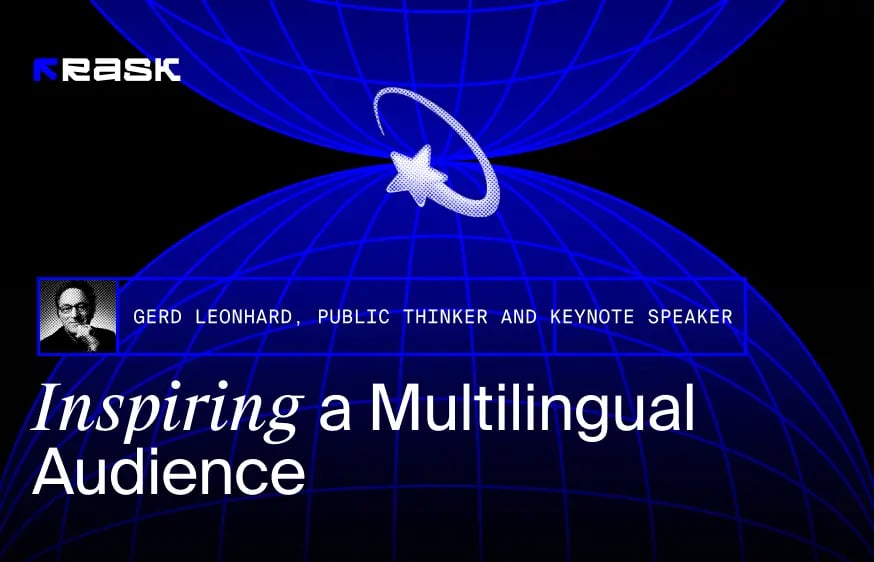

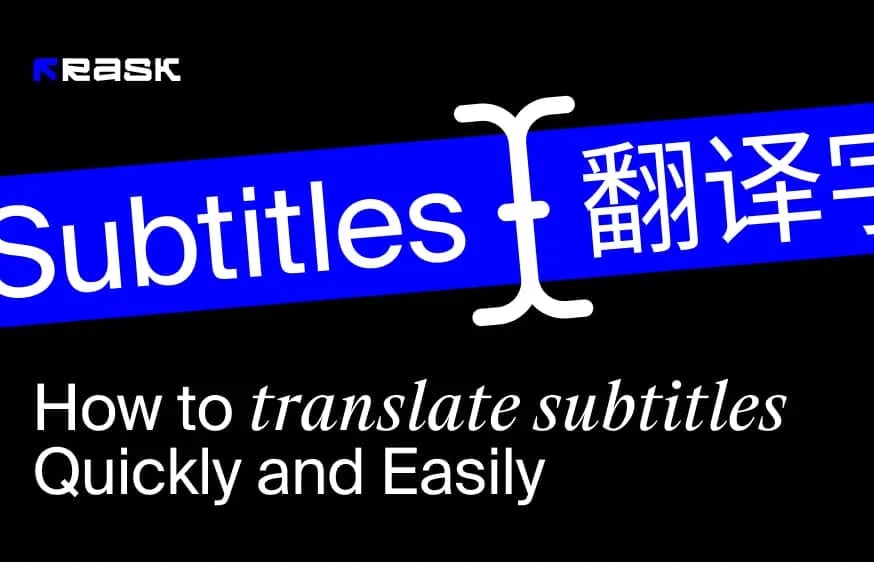
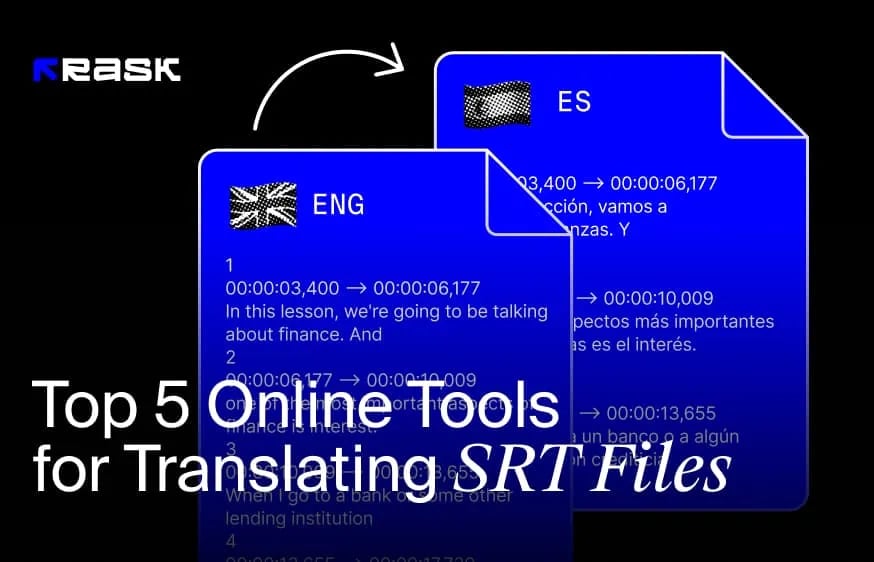


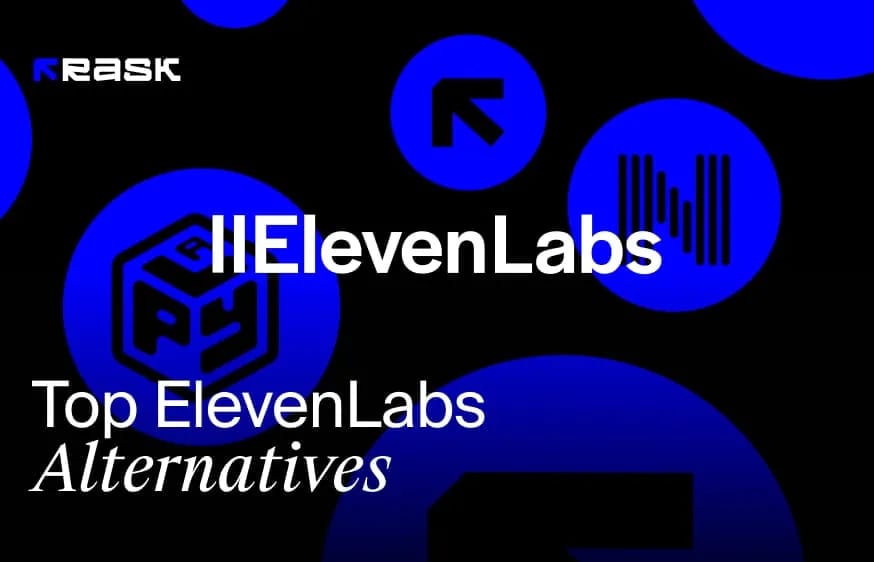
.webp)
